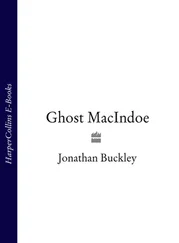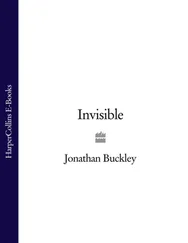1 ...6 7 8 10 11 12 ...19 Mr Gaskin is a pensioner, eighty-ish. He opens his front door cautiously, as people of his age tend to do, and opens it just wide enough to make a gap he can stand in. We often get a brief look of dread when we say who we are, but with Mr Gaskin all anxiety vanishes from his face when we identify ourselves and explain why we’re here. Solemnly courteous, gratified to be have been called upon to do his duty as a citizen, he invites us in. ‘I’m not sure I can be of much help,’ he apologises, and in his bearing and his voice there’s a sadness that seems long-standing. He’s a diminutive chap and extremely unsturdy. The skin on the back of his hands is like greaseproof paper with thin blue wires running under it, and the bones of his face are as sharp as a carving in wood. He is wearing a crisp white shirt and iridescent blue tie, though it’s soon revealed that he hasn’t been anywhere today and isn’t going anywhere after we’ve gone. In the front room a big leather armchair is aligned four-square with the TV. Beside the chair stands a table laden with books and a standard lamp with fat tassels. Obviously this chair is the only one in regular use, and on the mantelpiece there’s a big framed picture of a bride and groom, in the middle of a flock of smaller pictures. You know without looking closely that the bride is Mrs Gaskin and that Mrs Gaskin is deceased. There are photographs all over the place, on every wall and shelf, and the face of Mrs Gaskin seems to be in most of them.
We sit around a table, Mr Gaskin facing us, the blue-wired hands locked lightly on the table top. From the window by which we’re sitting Mr Gaskin can see the upper reaches of the path that zigzags down to the end of the beach road, and the start of the path that cuts through the trees, across the High Land of Orcombe. Many times he saw Henry heading over the High Land, or made out his figure down on the sand, sometimes making up a bed for himself against the sea wall, but as he recalls there was only one occasion on which he talked to him. Speaking gravely and with precision, as though from a witness box, he tells us about the evening in the autumn of the year before last, when he came across Henry. About six o’clock, it was, and he’d decided to take a stroll because there was a particularly beautiful sunset. The tide was low, so he went down on to the beach, and no sooner had he turned the corner of the headland, into the next bay, than he heard a loud crack and there was Henry, twenty or thirty yards away, with his back to him, close to the cliff. At Henry’s feet there was a pile of four or five wooden crates that must have been washed ashore and he was striking the pile with a long metal spike, the sort that’s used for raising a barrier around a hole in the road. ‘He was striking the crates with great force. Remarkable violence,’ says Mr Gaskin, and he pauses, unnerved anew at the sight of Henry and the crates. ‘As if slaughtering an animal. He was in a frenzy, I’d say. Yes. That’s not too strong. A frenzy.’
Then Henry turned and saw him, whereupon he lowered the spike and bowed, a deep and extravagant bow, like a swordsman’s bow to a rival in a duel. Henry wished him good evening and they talked for a minute or two. They talked about the fire that Henry was going to build. The rest of their conversation has been forgotten now, but Mr Gaskin does remember with some clarity three things about their meeting. The first of these is the peculiarity of Henry’s speech, the slowness of it, and the silences. ‘He had this air of being baffled, and I couldn’t decide if he was a thoughtful chap or a little lacking in grey matter. He seemed perplexed by me or by himself, but it wasn’t clear which,’ muses Mr Gaskin, and Ian writes it down, nodding in recognition. Every minute or so, as well, Henry would yawn, very widely, without covering his mouth, yet he did not appear tired. ‘It was a tic, I suppose, but most unnerving,’ he tells us. ‘And I think he had a Midlands accent. That’s the last thing.’
‘By “think” –?’ Ian asks.
‘I detected a flatness in the voice. In some of the vowels.’
‘You’re sure of that?’
‘I’m sure of what I heard, yes. I’m not wholly sure about the accent. Where it was from, I mean.’
‘But something like a Midlands accent?’
‘That’s how it sounded to me.’
‘Interesting,’ Ian comments. ‘I didn’t pick that up.’
‘You talked to him?’ asks Mr Gaskin, and the next minute Ian’s chatting to him about the swimming incident and the unnamed snoop with the telescope, which makes Mr Gaskin smile, with a wistful fondness, as though at the wackiness of a shared acquaintance. ‘One other thing occurs to me,’ he says, apparently prompted by something in Ian’s story, and he tells us that several times he saw Henry walking on the clifftops or the beach with a girl, a fair-haired girl, a bit on the plump side, average height. By girl he means under thirty, a few years under thirty. When he saw her with Henry he had a feeling that this wasn’t the first time he’d seen her. Ian asks if he could be a little more specific about her appearance, and Mr Gaskin presses his fingers to his temples, trying to squeeze a memory to the surface. Grimacing at the effort, he looks out of the window. We wait. Eventually he recalls that the girl was with Henry late one evening last summer, on the beach. Henry had his jeans rolled up and was collecting rubbish in a fertiliser bag. Behind him was the girl. She was wearing a purple swimming costume, a bikini, bright purple. Mr Gaskin puts a hand to his brow and closes his eyes, summoning the scene on the beach. We wait a little longer. ‘I’m sorry. It’s gone. I can’t see her face,’ he complains, at which Ian lets out a small laugh. Mr Gaskin opens his eyes and blinks at him, confused.
‘See the bikini, don’t see the face,’ Ian explains. ‘I can undertand that. I have that problem myself.’
‘Oh,’ replies Mr Gaskin. ‘I see. Yes.’ He smiles weakly, before again gazing out of the window.
‘This is useful,’ says Ian, tapping his notebook. ‘Thank you.’
Mr Gaskin follows us to the door in silence, his burden of sadness now increased by the failure of his memory. ‘If anything else comes to mind,’ he says, ‘shall I call the station?’
‘Please,’ says Ian. He writes down our names and phone numbers for Mr Gaskin, then shakes his hand.
Oswald and Son, greengrocers, began trading in 1947, from a shop on the outskirts of Exeter. Forty years later, the business having been left high and dry by the opening of a supermarket half a mile away, James Oswald, son of the son, was forced to shut down. Not long after, a new traffic system narrowed the pavement outside what had once been the Oswalds’ shop and clogged the road with cars and lorries from rush hour to rush hour. Marooned in what had become a moribund location, the former Oswald premises were left untenanted for years. The windows disappeared under billboards; the roof began to disintegrate. Then, one Sunday afternoon in November, while stuck in a traffic jam, Alice noticed the derelict shop.
At this point Alice had been working with Katharine Giles for no more than a couple of months. The operation was being run from the kitchen of Katharine’s house and a lock-up garage near Katharine’s house, an unsatisfactory arrangement but one to which there seemed to be no affordable alternative. Until, that is, Alice saw the shop and decided, feeling the seed of an idea instantly taking root, to take a closer look. She picked off a corner of a poster to peer through the sooty glass; she went round the back and found a small yard and a loading bay. The building had been neglected for so long there wasn’t even an agent’s board on it, but Alice soon tracked them down and made them an offer: she and her partner would refurbish the shop and pay the rates on it, but would pay no rent; they would have a lease for a year and after that they would be on one month’s notice to quit, should a long-term tenant come along. This offer, submitted in writing, was unacceptable. A second letter, elaborating on the humanitarian nature of their enterprise, and for good measure reiterating that the restoration of these dilapidated premises could only be of benefit to the landlords, who at present were lumbered with an asset of negligible commercial value, was likewise rebutted in the fewest possible words.
Читать дальше












